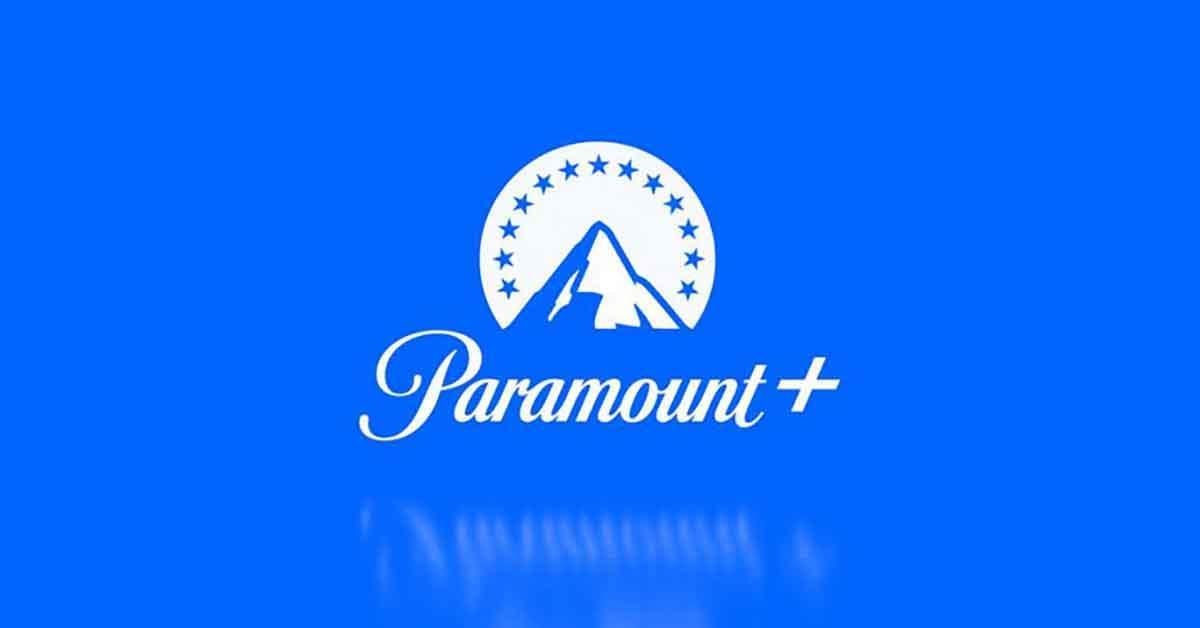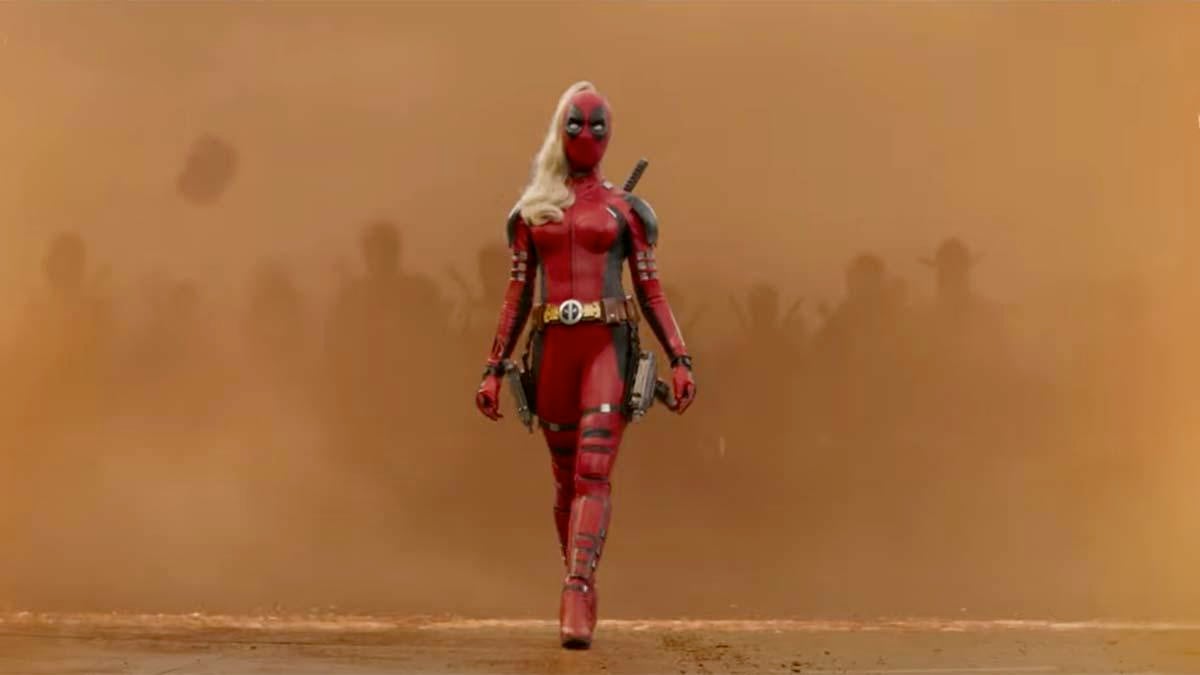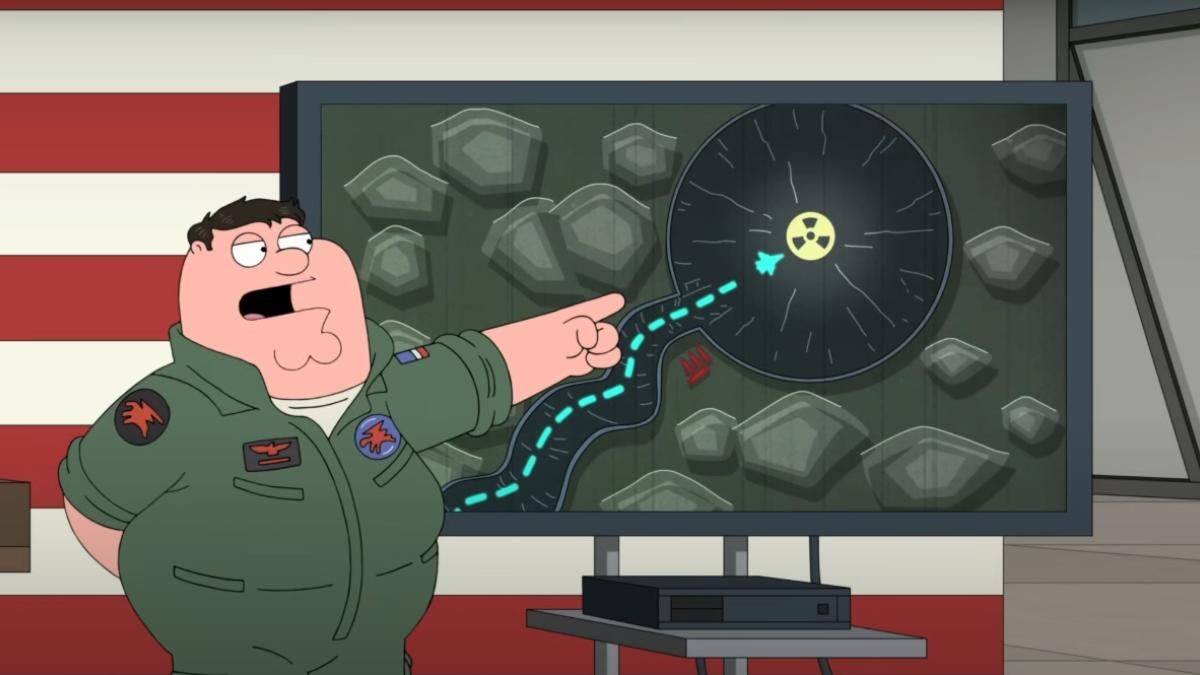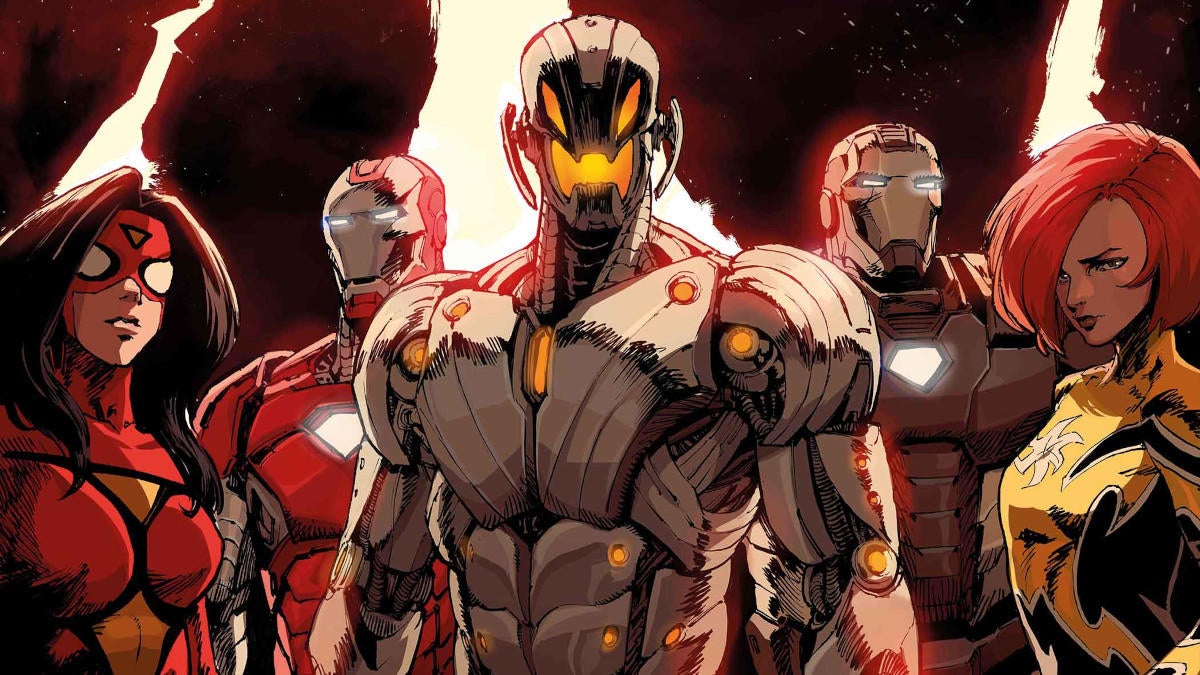David Duchovny Talks His New Graphic Novel Kepler, The X-Files, and More (Exclusive)
Having played Agent Fox Mulder in The X-Files for multiple decades, David Duchovny is intrinsically linked with some of the best sci-fi stories in history, but his interest in the realm isn't limited to starring in the Chris Carter franchise. While Duchovny might also most be known for his on-screen roles in various movies and TV series, he has a number of creative outlets, with his interests in sci-fi and his writing pursuits resulting in the development of the all-new graphic novel Kepler from Dark Horse Comics. Kepler is currently available for pre-order and hits shelves on December 27th.
In Kepler, which Duchovny developed with Phillip Sevy, "When the Benadem, benevolent space gods, return to Kepler, a planet where Homo sapiens went extinct and all other hominid species thrived, their arrival threatens to plunge the world into chaos. West, a 16-year-old Neanderthal girl, is thrust into the conflict and her efforts -- unique because of her mixed hominid heritage -- not only change her life, but also reveal the merciless ambition and identity of the gods themselves."
ComicBook.com caught up with Duchovny to talk the project's origins as a possible live-action movie or TV show, developing the sci-fi storyline, and the future of his other well-known narratives.
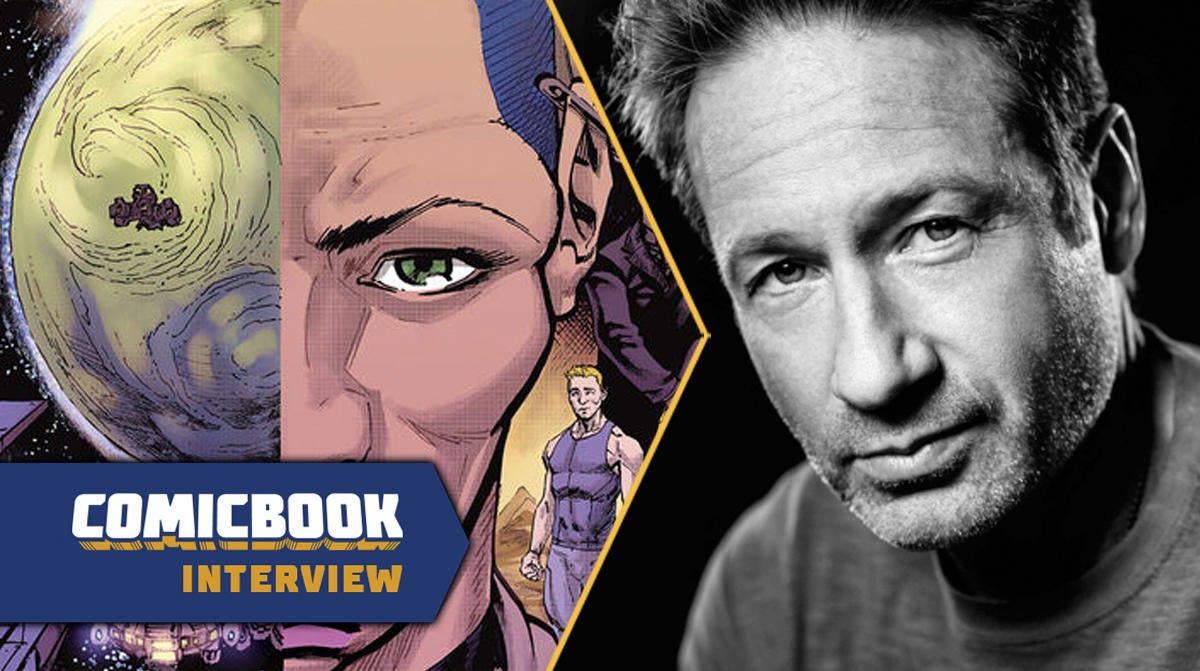
ComicBook.com: I do want to start off with something that could either be the easiest question to answer or possibly the trickiest question to answer, but I want to get it out of the way right up front: Do you believe in aliens?
David Duchovny: Well, not really in the sense of having experiences with them or believing that anybody's had experiences with them, but I've always just said the odds are pretty strongly against this planet being the only place where life experimented with itself, so I find it hard to believe that there aren't any. But I don't think we've ever had any visitations.
Great, I'm happy we were able to clear that up, get it out of the way right off the bat. That ties into your new book and projects from your past, but I think what's exciting about your book is fans will be excited to see you diving into the comic book medium, the comic book format. Do you have much history with comic books? Are you much of a fan of comic books or was it just an exciting opportunity to adapt this story into this medium?
I don't have any experience with comics. I didn't really read them growing up, and I've checked out a couple graphic novels in my adulthood. What's interesting about graphic novels, to me, is the similarity of storyboarding a movie or something like that. That's where I came at it. It was like, I'm looking at this thing as a show or as a movie. It's the way it appears to me in my head. Then, what's the closest thing to actually doing that is storyboarding a film, to me, that's what a graphic novel really is.
What I really dug about the book and the story is there are elements that I felt were reminiscent of things like Planet of the Apes and Jules Verne's The Time Machine. Were there certain figures or stories in the sci-fi world that have left a major impact on you as a creative that you either wanted to honor and channel the spirit of or intentionally veer away from to do your own thing?
Well, certainly, I'd say a real key -- not a key moment, but one that I remember very distinctly when I was a kid, was the reveal in Planet of the Apes that they've been on Earth the whole time. It just blew my mind. Blew my little mind, however old I was. And I guess when I saw The Sixth Sense, that was another time where I was like, "Okay, I didn't see that coming." That was a great, classic switcheroo, and I was like, "Ah, I wish one day I could figure something out like that."
That, in this story, became the twist. I feel like there's a Twilight Zone similarity, where you realize that the aliens are humans, and that was what I wanted to get, was like, "Okay, instead of the reveal being we're on Earth, which is what it seems like we are, we're on a different planet and the aliens are actually Homo sapiens." That was my little trick.
When it came to developing the original story, I got my degree in anthropology, and so I can't think of the last time I read the word "hominid" in a graphic novel, so that immediately struck me that clearly there was research and a lot of preparation that went into distinguishing the different species and creatures in this story. What was that research process like? Was there a deep dive into anthropology and human society or did you try to focus on your own creative liberties and then retroactively go back and pepper in some of the more scientific elements?
That's a good question, because it describes the process, which is a little bit of both. I begin with the research. I guess an inspiration was reading that book [Sapiens: A Brief History of Humankind] from a few years ago, and it opened my eyes to the unrecorded history of this planet, and that we've never really reckoned with the journey that Homo sapiens has made. We always talk about how man subdued the planet or whatever. We're at the top of the food chain here because of our intelligence and our technology. We don't know how we got here in terms of other hominids. We subdued the beasts, but apparently we also subdued animals very close to what we are. That was fascinating to me. What happened? Why did we "win"? These other primates, these other hominids, were very well-suited for the planet. They were very smart. They were very strong. So, what happened? I was just fascinated by that idea.
It was going back from that and really getting the real research, which is exploding now, with the Neanderthal DNA, and just this idea of trying to figure out this erased past, but transposing it onto another planet, where we could watch it play out was fascinating to me. Then, it also became about, I've had a fascination with bonobo monkeys for a while, which I don't know if you know about them, maybe you do. But they're matriarchal, and they resolve conflicts through sex or communication rather than hostility or violence, and I wanted to make a hominid that was descended directly from those primates rather than chimpanzees or whatever we might be closest to. There was some fantasy involved in terms of creating new hominid species, but I also wanted to allude to the fact that our own planet is filled with aliens, I guess you could say, from our past. That's very much how they might appear to us if we were to walk into one.
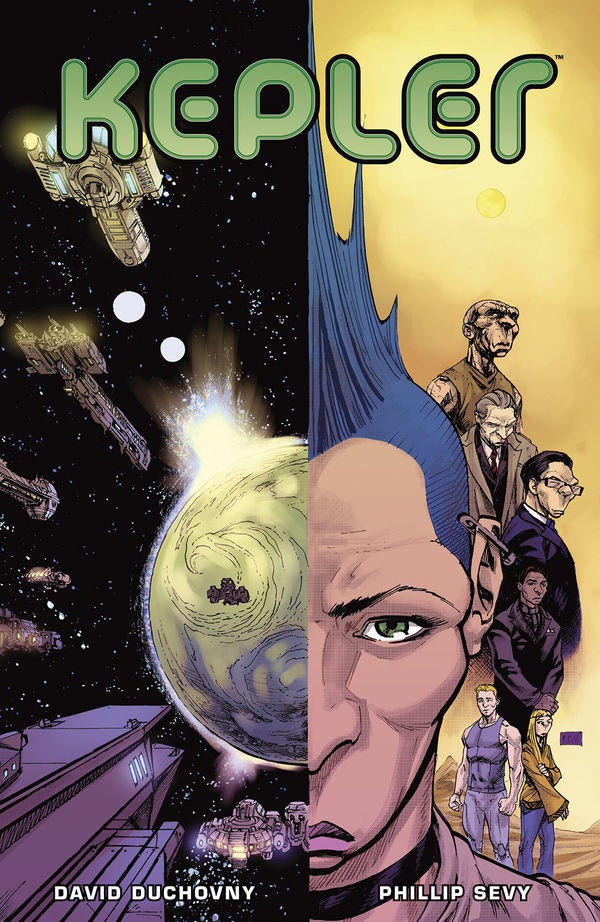
Your book is so rife with possibilities of how to explore those themes, similar to what Stan Lee did with mutants in the X-Men, that we're at a point in society where anything different, anything "Other," is immediately ostracized or looked down upon, as opposed to recognizing, "That could be what's next for us. We might be evolving and we just don't know it yet. We're not aware enough in this macro timeline."
I hadn't made that connection between that and X-Men, but I think that's part of my story, that the [Homo] floresiensis, the Iago character, wants whatever it is in the Homo sapiens DNA in him, because the story of history is that Homo sapiens are the superheroes. Homo sapiens, we don't need to make any other more powerful being, because we're already there. We won the planet. We destroyed everything in our way. We co-opted everything in our way. So, we are the X-Men on this planet, and the floresiensis is an earlier type of hominid. Iago, in the book, he wants that, whatever it is. It's not brute strength. It's not a superpower that is recognizable. It's something else, and that something else was something I was looking at when I was reading Sapiens, which the author of that [Yuval Noah Harari] says basically, that superpower is restlessness, is the inability to remain in one place. What we might experience as anxiety, that might be our superpower.
When I'm reading the book, it has this sci-fi premise, this fantasy premise, and then the deeper into it you get, the more obvious it is that you're tackling ideas of politics and religion and just the Other, and lots of big, heady concepts. Did you find it to be a therapeutic process for you to get all these ideas out there that a lot of people struggle to cope with and struggle to figure out and grasp? Did you feel like you were a different writer as a person from when you started this storyline to when you finally finished it?
That's interesting. I don't know that I was a different person, but I was very aware of the freedom that science fiction can give that I hadn't experienced before as a writer. I had when I wrote for X-Files, I guess, but I haven't really written science fiction aside from that. To me, what science fiction does the best of, of any of the genres, is that it can work in a beautifully allegorical way and can comment subversively on what's going on in our world now through fantasy.
You don't get bogged down necessarily in the specific politics of it, but you go with the flow of the environment. We're talking about the deepest questions about what it is to be human, what it is to be a top dog on a planet, the responsibilities of that. How did we get here? Obviously, underneath it all, there are discussions of speciesism, which is also a discussion of difference, as you say, of the Other, of the fear of the Other. And also, the matriarchy. When you bring up the bonobos, you're talking about a matriarchal society as opposed to the one that we find ourselves in on this planet for the most part. All those hot-button issues of the last three or four years, and of course forever, but coming to a boil the last three or four years, are in play in the fantasy of it, whereas if one were to tackle it head-on, it would just become politics as usual.
I know your co-writer on this had mentioned, the illustrator, he mentioned that he listened to a lot of the Interstellar soundtrack while working on this book and illustrating. For you, you could answer in one of two ways. Since I know you love music, did you have a particular soundtrack or musician on while writing, or do you have music that you could imagine readers listening to while reading your book?
That's something I've never wondered about, so let me try to answer in a coherent way. I will listen to music when I'm writing, but it's often soundtrack music, because the words will distract me. So it's instrumentalists, stuff like that, and I don't recall listening to anything specific while I was doing that.
I'm taken with this idea that Homo sapiens just foisted an entire culture upon these Neanderthals, so you've got a Neanderthal Elvis, you've got a Neanderthal Lucy and Desi. For me, it was also like listening to covers of great rock songs that are done by people from other cultures and other languages, where you have this eerie or uncanny sense of the familiar, yet you're listening to a very, very different version of something that you know so well in your own culture.
It makes me think of putting on a famous record but then playing it at the wrong speed. It's either sped up or slowed way down, so it's like, "I know this is familiar, but something is off about what I'm hearing right now."
Exactly. That's the sense that I wanted to have for the world that I was creating on Kepler. I hope that answers the question. It's a good question, I just didn't want to be flip and give you a quick answer.
Even though this project started as a TV show or as a movie or as a first season or a pilot, is that still the endgame? In the sense of, do you see yourself writing more comic books in the future, whether they be in the Kepler universe, or maybe how X-Files has a comic book presence? Has that ignited your interest in that medium?
I'm going to see what it's like when it comes out and the places it goes. I try not to have endgames for things that I'm working on because I want to respect the process of the thing that I'm working on, so this is just the graphic novel to me. That's the endgame of this thing, because otherwise, it just feels like you're trying to make a stepping stone in a way, and the process for me becomes a little wonky in that case. If something happens, if somebody can look at it, which is easier to look at a graphic novel than a screenplay about Neanderthals, I think, and sees what I saw in the beginning, which was a great, expansive world-building television show or movie franchise, then yeah, let's go. I think the idea of an endgame, to me, like I said, is, "Okay, the endgame is this thing. The endgame is this graphic novel, Kepler." Now it goes out into the world. I have no control over what happens now, but I'm curious.
I absolutely love The X-Files, and I can't get enough X-Files. I know you personally love Mulder, you love The X-Files, you'd be happy to return, and I know Gillian Anderson's a little more on the fence about that. Do you see a future of a live-action X-Files without Scully? For you, as for your involvement, even though we've had X-Files without Mulder, do you see an X-Files in the future without Scully, or do you think you would have to pivot to a Mulder spinoff or a Mulder book or comic book or something like that?
I don't know. I've never really considered that. For me, it was always there's no show unless it's Chris and Gillian, so I don't know. Again, I don't want to have to think about that, because it's not something that I necessarily need in my life, to go do that. I think at this point, I mean, there might be another iteration of the actual show without either of us. I'm not sure. Or there could be a cartoon. There are many ways to go about it. But personally, for me, the X-Files that I'm involved in consists of Chris Carter, myself, and Gillian, so I haven't spent time trying to think about a different version of that, and I don't know that I will.
Kepler is currently available for pre-order and hits shelves on December 27th.
This interview has been edited for length and clarity. You can contact Patrick Cavanaugh directly on Twitter.

